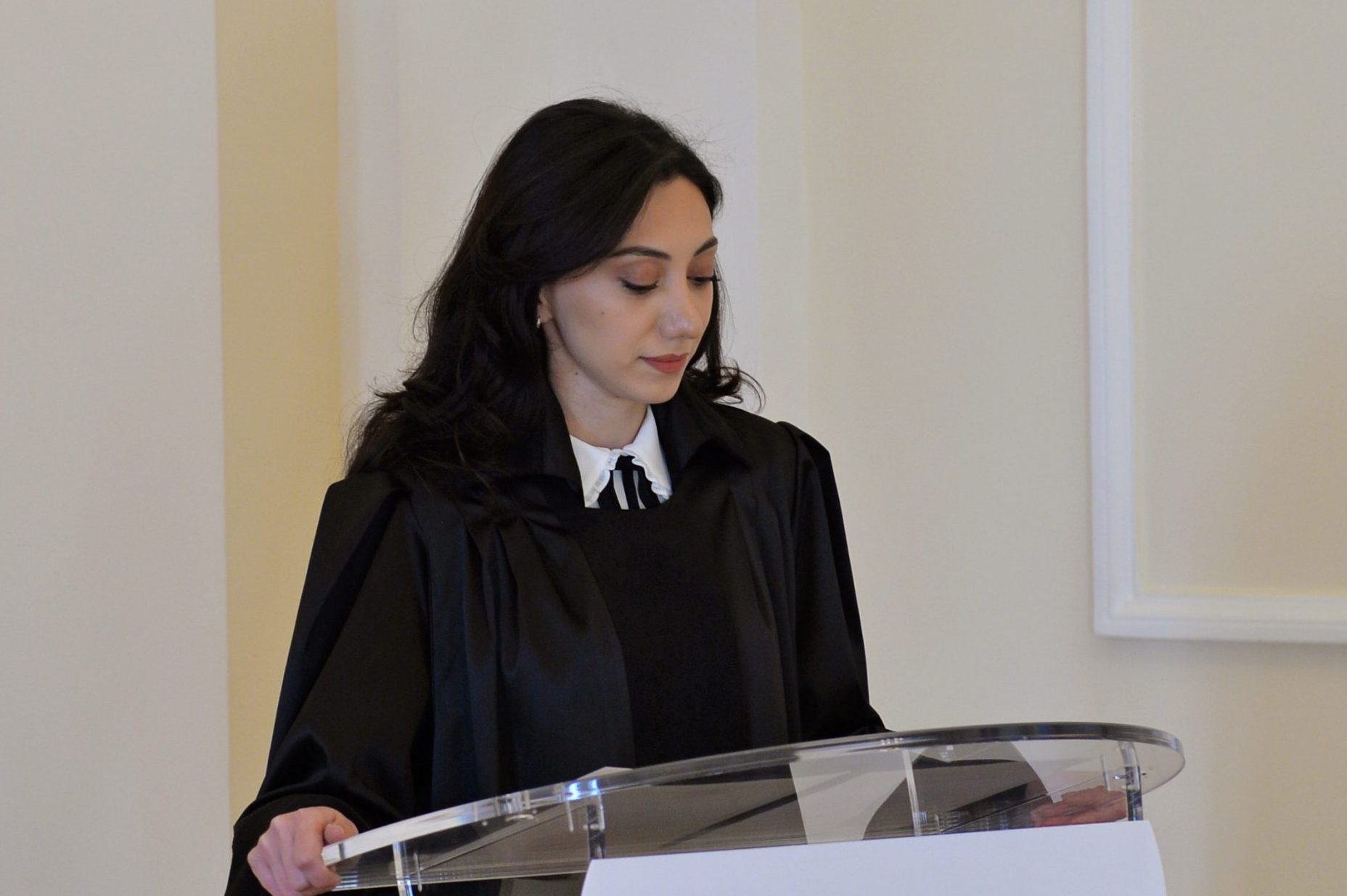On 5 April, the Anti-Corruption Court was examining the claim for the confiscation of property of illicit origin of the wanted ex-General Prosecutor Gevorg Kostanyan, his wife Lilit Kostanyan, Arman Galstyan and Ara Kostanyan.
According to Iravaban.net, the presiding Judge Lili Drmeyan announced at the beginning of the session that the oral applications received by the mass media regarding the live broadcasting, photo- and video recording of the session will be considered after the identification of the representatives of the respondents, the prosecutor and verification of power of attorney data.
During that time, one of Ara Kostanyan’s representatives, Smbat Minasyan, was not allowed to act as a representarive. The power of attorney presented by the lawyer stated that the latter can provide representation in all courts, including first instance, appeal and cassation. According to Lili Drmeyan, special indication of specialized courts should be made in the power of attorney.
According to Smbat Minasyan, the power of attorney says “including”, not “as well as”. “Including” does not mean privatization.
The Judge announced that only Ara Kostanyan could express his opinion on this and state what he meant by giving the power of attorney. “According to the court you do not currently have the authority to represent the interests of Ara Kostanyan in the Anti-Corruption Court, with this power of attorney.”
The lawyer said that he will present a new power of attorney during the next session, and until then he will sit in the hall.
Further the Judge asked the parties whether they have a motion to challenge the court or not. At the same time, she stated that she and the plaintiff in the case, Nelli Ter-Torosyan, the prosecutor of the Department for Confiscation of Property of Illicit Origin of the General Prosecutor’s Office, were classmates and fellow students.
“We have known each other since 2011, and even after graduation, we had regular contacts both personally and by means of telecommunications, within the framework of classmate and course mate meetings. The court does not consider those circumstances as grounds for recusal. Dear parties, do you see grounds for challenge?” Judge Drmeyan asked.
Both, the representatives of the respondents, as well as the prosecutor stated that they do not see such grounds.
After all these actions, about 25 minutes after the start of the court session, the court decided to address the applications submitted by the mass media. The prosecutor did not object, Ilona Mirzoyan the representative of respondent Ara Kostanyan, stated that she did not object either. Only Varazdat Asatryan, the representative of Gevorg Kostanyan, had an objection.
“Both filming and taking photos are disturbing, because here, in a certain sense, there is a mental process and the use of technical means, objectively, I don’t know… You also had that experience in court sessions, they actually disturb. As a result of the use of technical means, certain technical conditions appear. For example, they can divert the attention of the trial participants from expressing their position,” the lawyer said, noting that it is not necessary to videotape this court session.
Lili Drmeyan, referring to the provisions of the Civil Procedure Code, stated: “Video recording, photographing, broadcasting is allowed only with the consent of the parties participating in the case, with the permission of the court. In this case, since one party objects and presents certain reasonable justifications, the court finds that the motions are subject to rejection.”
In judicial practice, in cases of public importance, judges allow video recording and photography, except for the party who objects to it. In the corresponding decision of the SJC , which also regulates the work of journalists in courts, it is stated that the above actions can be carried out only with the permission of the court.
“The court can grant permission based on the results of consideration of the relevant journalist’s petition, while the need to fully protect the right to a fair trial must be adequately taken into account. Decisions to grant or deny permission must be accompanied by necessary and sufficient justifications,” the decision states.
In addition, in the same decision of the Council, it is stipulated that the issue of the permission to record live video and take photos should be discussed and resolved based on the journalist’s oral application to the secretary of the session immediately before the session, not 25 minutes after the start of the session. “Permission is granted to broadcast live recordings and photo-video recordings of open court hearings in this case and is interrupted only on the basis of a reasoned decision of the court on the grounds provided for by law.”
In the photo is Lili Drmeyan, during the swearing-in ceremony at the residence of the President of the Republic.
Yevgenya Hambardzumyan















